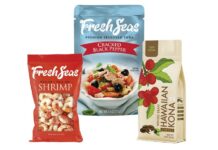Packaging serves as an essential tool for efficient delivery systems, reducing product damage and food waste at every stage of the supply chain, and meeting consumers’ need for convenience.
A significant emerging trend in the field of packaging manufacturing is the global emphasis on sustainability and the transition to biodegradable packaging materials. As people become more conscious of the detrimental effects of single-use plastic packaging, they are actively seeking environmentally friendly alternatives such as starch, cellulose, PHB, PLA, and PHA, as well as plant-based packaging materials derived from sources such as sugar coconut, cane, hemp, and corn starch like recently Dow and New Energy Blue announce collaboration to develop renewable plastic materials from corn residue.
Demand depends on consumers
During the COVID-19 pandemic, online shopping saw a significant increase, leading to a rise in packaging waste. This issue has garnered attention due to heightened global regulations on packaging waste and consumers’ growing sustainability concerns. As a result, companies are under pressure to incorporate sustainability measures across their product lifecycle, particularly in packaging materials. Recognizing this opportunity, the packaging industry is actively embracing sustainable solutions to create packaging systems that align with consumer preferences and environmental goals.
The actual problem related to plastics
Plastic has been the preferred packaging material since the early 20th Century due to its durability, lightweight nature, and cost-effectiveness. However, the drawbacks of single-use plastic packaging, which is difficult to recycle effectively, are becoming increasingly evident. Plastics contribute significantly to pollution, taking up to 1,000 years to biodegrade, and approximately eight million tonnes of plastic enter the ocean annually.
The negative impact of plastics and Increasing environmental awareness have led to a growing demand for biodegradable and compostable packaging. Brands and consumers alike are actively pursuing alternatives with a smaller environmental footprint than traditional plastics. Despite the higher cost of biodegradable packaging compared to conventional materials, insights reveal that 55% of US consumers prioritize the environmental impact of packaging, and 70% are willing to pay extra for sustainable options.
Advantages of biodegradable packaging
Biodegradable packaging offers a significant advantage in reducing waste in the food industry. Unlike traditional plastic packaging, which contributes to tons of waste lingering in landfills or polluting oceans for extended periods, biodegradable food packaging naturally and fully degrades.
Challenges of biodegradable packaging
Sustainable packaging has yet to gain widespread acceptance and affordability compared to plastic packaging. Its technology hasn’t reached the level of mass adoption. Biodegradable and compostable materials are currently more expensive than traditional petrochemical-based polymers globally, but this cost is expected to decrease with increased production.
In addition to cost, sustainable packaging materials must perform as well as non-sustainable options to meet consumer expectations and effectively manage food waste and supply chain damage.
Reducing virgin materials and increasing recycled content is another challenge in sustainable packaging. Manufacturers should prioritize solutions that address the issue at its source, set reduction targets, and optimize supply chain and materials management.
Utilizing technology to attain sustainability targets
Technology plays a vital role in supporting packaging manufacturers in achieving their sustainability goals. Flexible ERP management tools and systems enable manufacturers to enhance operational efficiency and effectively respond to changing customer demands, regulations, and market trends. Systems such as Materials Requirements Planning can minimize waste, comply with waste and recycling regulations, and provide comprehensive reporting. Additionally, integrated business intelligence reporting enhances visibility into purchasing patterns and supplier trends through value stream analysis.
Furthermore, ERP systems assist in meeting industry standards for sustainable packaging manufacturing. Implementing a comprehensive business system streamlines workflow, increases productivity, and maximizes profits while allowing for scalable growth.



























